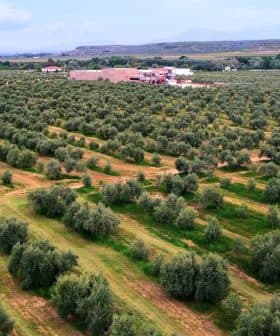Rising Prices Expose Untapped Potential for Tunisian Exports

Tunisia’s olive oil exports have increased in volume and value in the first eight months of 2022, with a one percent rise in volume and a 33 percent increase in value due to rising prices per kilogram. The country’s olive oil exports have been crucial for its trade balance, especially in light of increased imports of other staples, and there is potential for further growth by increasing export quotas for strategic products like olive oil in the European market.
Olive oil exports by volume and value have risen in the first eight months of 2022, according to recently-published data from the National Observatory of Agriculture (Onagri).
From January to August, olive oil exports increased by one percent in volume compared to the same period last year, up to 145,000 tons. However, the value increased by 33 percent due to a significant rise in olive oil prices per kilogram, from TND 8.09 (€2.66) to TND 10.66 (€3.51).
There are many agricultural products, such as olive oil, tomatoes and dates, which still have untapped export potential.
Since the beginning of the 2021/22 crop year, Tunisia has exported TND 1.9 billion (€638 million) worth of olive oil, a 30-percent increase compared to the previous crop year despite the volume of olive oil falling from 194,800 tons in the 2020/21 crop year to 184,000 tons.
According to Onagri, Tunisian olive oil exports significantly contribute to the country’s trade balance, acting somewhat as a counterbalance to the 110-percent rise in vegetable oil imports and the increase in imports of other staples, such as sugar and cereals.
See Also:Morrocan Olive Oil Exports Rise After Last Year’s Bumper CropInternational Olive Council trade data indicate that Tunisia has exported an average of 218,000 tons of olive oil per year in the last five years, placing the country as one of the world’s largest exporters.
Tunisian olive oil production has been gaining relevance for the economy due to significant international trade agreements, most notably with the European Union. Those agreements have allowed the country to sell olive oil to large and affluent global markets with minimal tariffs.
A recent study presented by the German Bertelsmann Stiftung foundation emphasized the strategic relevance of trade relations with the E.U. for the country. Seventy-five percent of all Tunisian exports go to the E.U., and 50 percent of the country’s overall imports come from E.U. countries.
According to the foundation’s report, the E.U. might play an even more prominent role in sustaining the Tunisian economy.
“Yet some Tunisian agricultural products are subject to E.U. trade restrictions, which is why only 56,700 tons of its olive oil can be exported to Europe duty-free,” the report said.
See Also:The Best Olive Oils from TunisiaFor several years now, Tunisian authorities have asked the European Commission to increase the quota of duty-free olive oil exports.
According to the report, the Russian invasion of Ukraine has put growing pressure on the country’s economy, and the E.U. should take notice.
“There are many agricultural products, such as olive oil, tomatoes and dates, which still have untapped export potential,” said Houssem Eddine Chebbi, an author of the report and professor of agricultural economics at the Ecole Supérieure des Sciences Economiques et Commerciales in Tunis.
“Tunisia has a number of possibilities for further increasing its product range and export volumes in the European market,” he added, and should “engage in talks with the European bloc and increase export quotas for strategic products such as olive oil.”
“This would have a positive impact on the national economy and consequently the country’s stability,” Eddine Chebbi concluded.









